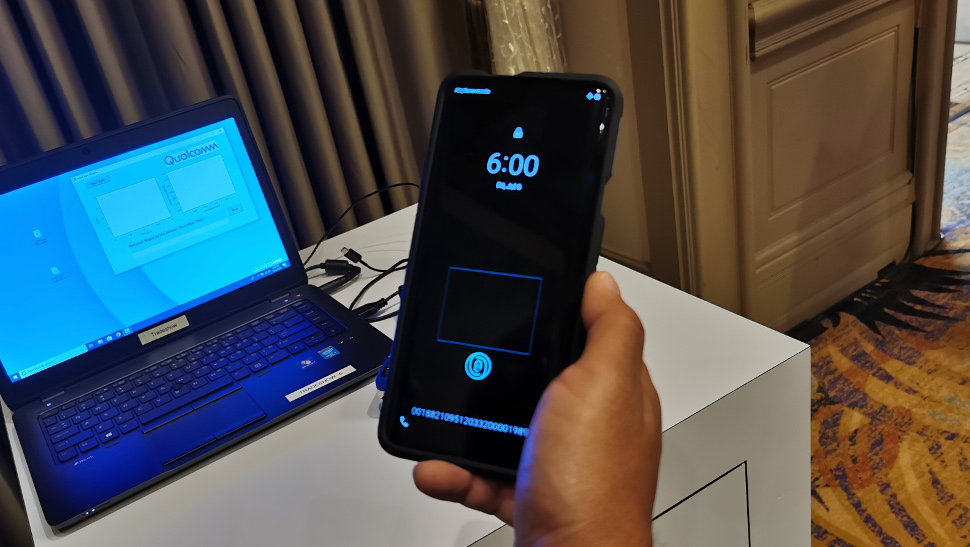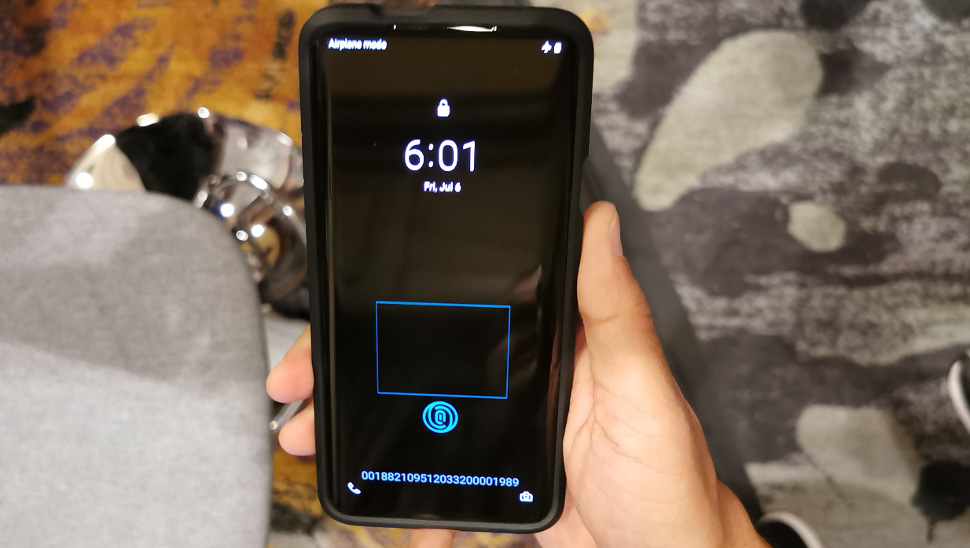We went fingers-on with the world's largest fingerprint scanner
3D Sonic Max sensor wants to make your phone more secure

Qualcomm has taken the wraps off its next-generation fingerprint scanner as it looks to make smartphones more secure than ever.
The company unveiled 3D Sonic Max, the second generation of its in-display fingerprint sensor, at its Snapdragon Summit in Hawaii, revealing a scanner that is 17 times larger than the previous generation.
TechRadar Pro got the chance to see the future of smartphone security at the event - here's our first impression.
- Qualcomm: Get ready, the 5G future is here
- New Android flagship phones in 2020 will use the Snapdragon 865 5G chipset
- Your next smart speaker will listen better and last longer thanks to Qualcomm

Speedy
Qualcomm had a demo device equipped with the new sensor at Snapdragon Summit, and first glances are pretty striking.
That’s because 3D Sonic Max is 17 times bigger than the first generation sensor, which debuted in the Samsung Galaxy S10, measuring 20mm x 30mm versus the 4mm x 9mm in the older hardware.
That particular sensor gained notoriety due to several issues, including a security flaw that meant users with a cheap screen protector were able to unlock a device using anyone’s fingerprints - however Qualcomm says he new scanner is able to capture a much clearer fingerprint image than the older generation sensor, giving it far greater security protection for mobile users.
The upgrade in size was instantly visible on the demo device Qualcomm provided (see image below) highlighting just how much bigger the new sensor is.
Are you a pro? Subscribe to our newsletter
Sign up to the TechRadar Pro newsletter to get all the top news, opinion, features and guidance your business needs to succeed!

This larger build should make it easier to place a fingerprint for scanning, a bugbear for many smartphone users struggling to unlock their device on the move, as well as speeding up authentication.
The demo we saw was insanely fast at detecting a single or double fingerprint, unlocking the device a matter of milliseconds - enabling what the demo worker from Qualcomm called "blind unlocking", saving the need to fumble around to get your finger in the right place.
There’s no news yet on what devices will ship with the new 3D Sonic Max, but the service will ship with Qualcomm’s newly-announced Snapdragon 865 chipset, which is set to power most of the leading Android devices released in 2020.
- Keep yourself safe online with the best antivirus software of 2019

Mike Moore is Deputy Editor at TechRadar Pro. He has worked as a B2B and B2C tech journalist for nearly a decade, including at one of the UK's leading national newspapers and fellow Future title ITProPortal, and when he's not keeping track of all the latest enterprise and workplace trends, can most likely be found watching, following or taking part in some kind of sport.